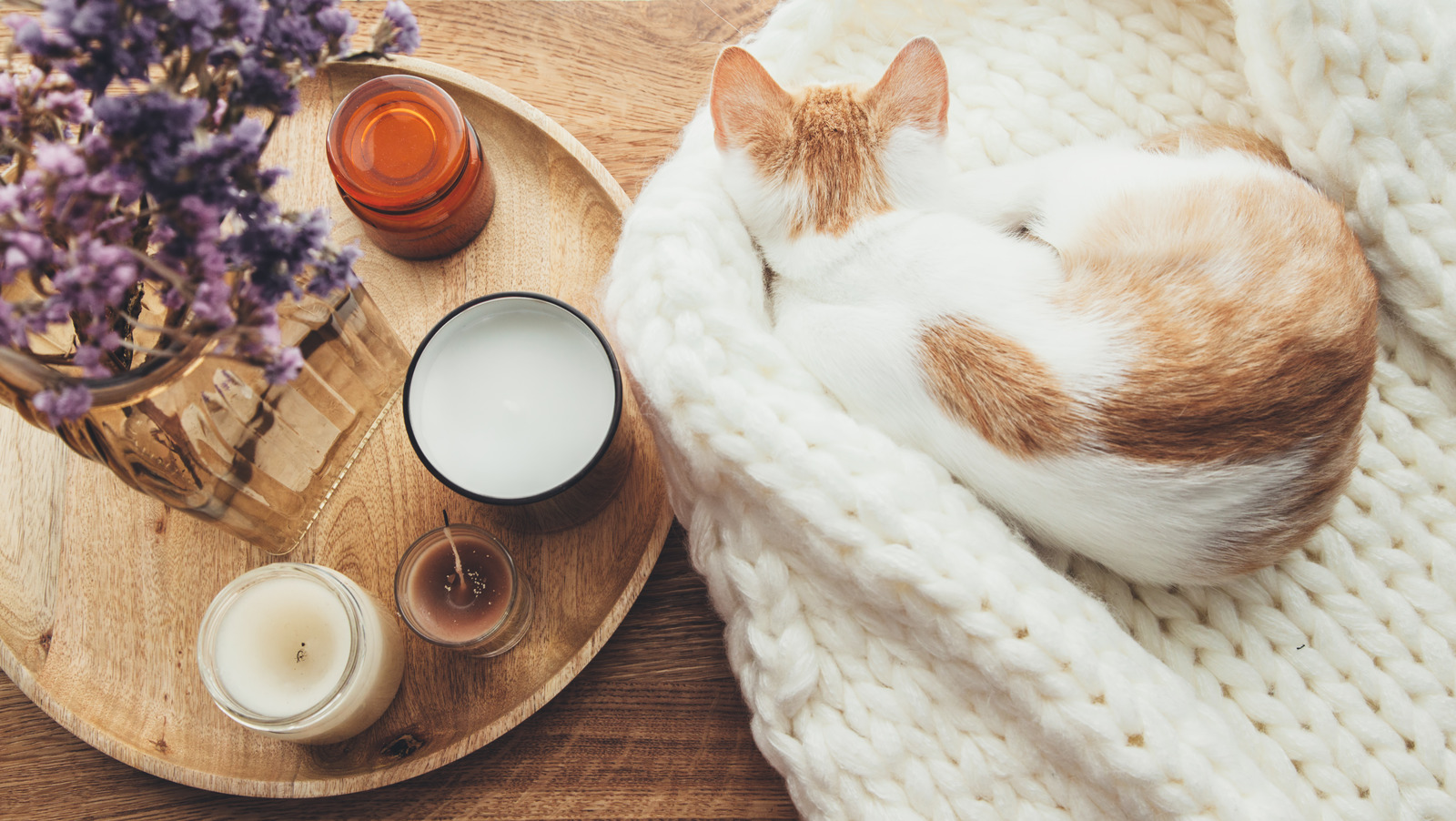Introduction
Enhancing the ambiance of your home with scented candles is a common practice, but as a cat owner, it’s crucial to consider the potential impact on your feline friend. In this comprehensive guide, we’ll delve that are scented candles safe for cats, exploring their heightened sensitivities and offering practical tips for a harmonious living environment.

Understanding Cats’ Sensitivity
Cats boast a remarkable sense of smell, far more acute than that of humans. While we may delight in the fragrances of scented candles, the intense and artificial scents can be overwhelming for our feline companions, potentially causing discomfort and stress.
Potential Health Concerns
The ingredients in scented candles, including essential oils or synthetic fragrances, can emit volatile organic compounds (VOCs) when burned. Inhaling these compounds may lead to respiratory issues in cats, particularly those with pre-existing conditions like asthma or bronchitis.
Candle Wax and Additives
The type of wax used in candles is a crucial factor. Paraffin wax, commonly found in many candles, releases soot and chemicals when burned, posing risks to both humans and pets. Opting for candles made from soy or beeswax can be a safer alternative, as they produce fewer pollutants.

Essential Oils and Cats
Many scented candles incorporate essential oils for fragrance. While some essential oils are safe for humans, certain ones can be toxic to cats. Cats lack a specific liver enzyme to metabolize these oils, making them susceptible to adverse effects such as nausea, lethargy, or more severe complications.
Safer Alternatives
For cat owners who enjoy having scents in their homes, there are safer alternatives. Candles made from beeswax or soy with minimal or no added fragrance are preferable. Additionally, using essential oil diffusers in well-ventilated areas where cats have the option to retreat is a more cat-friendly choice.
Precautions for Cat Owners
- Monitor Your Cat’s Behavior: Pay close attention to any changes in your cat’s behavior when using scented candles. Excessive sneezing, coughing, or hiding may indicate discomfort.
- Choose Candles Wisely: Opt for candles with natural ingredients and minimal fragrance. Check for any toxic components harmful to cats, and always read product labels.
- Ventilation is Key: Ensure proper ventilation when using scented candles. Open windows or doors to allow fresh air circulation, minimizing the concentration of airborne particles.
- Create Safe Spaces: Designate areas in your home where your cat can retreat if the scent becomes overwhelming. Providing a sanctuary allows them to escape potential discomfort.
- Limit Exposure: While occasional use of scented candles may not pose significant risks, it’s advisable to limit their use in areas frequented by your cat. This precaution helps reduce prolonged exposure to scents.
Are scented candles safe for cats?
Conclusion
Balancing a fragrant home with a cat-friendly environment requires mindful choices and precautions. Prioritize your cat’s well-being by opting for safer candle alternatives, staying vigilant for signs of discomfort, and creating spaces where your feline friend can feel secure. With thoughtful considerations, you can enjoy the cozy ambiance of scented candles while ensuring a safe haven for your beloved cat.
FAQS
Candle wax itself is not typically poisonous to cats. However, the concern arises when candles are made with certain additives, dyes, or scents that may be toxic to felines. Paraffin wax, a common ingredient in candles, is generally considered non-toxic, but when burned, it can release potentially harmful substances into the air.
The more significant risk comes from scented candles containing essential oils or synthetic fragrances, as some of these substances can be irritating or toxic to cats. Cats have a sensitive respiratory system, and exposure to certain chemicals in the air can lead to respiratory issues or other health problems.
